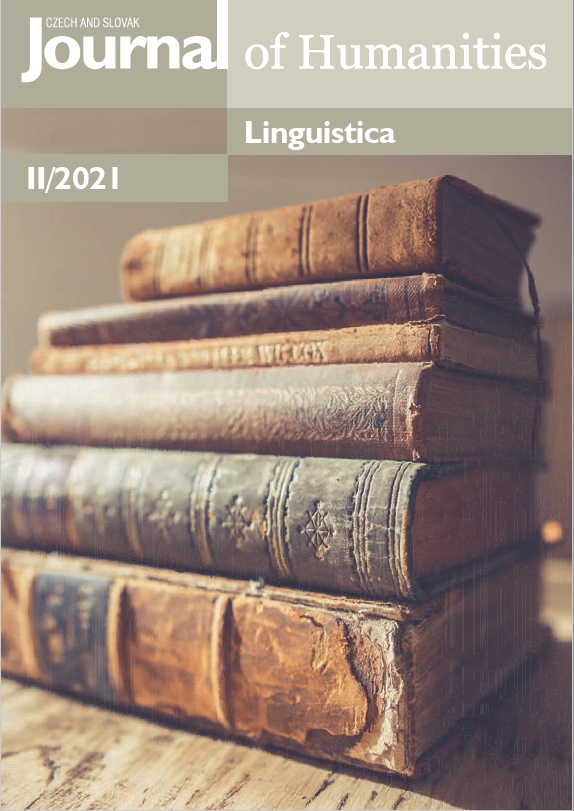Issue for download ▼
Content
Benjamin Bossaert
A. Den Doolaard and a Remarkable Case
of Pandemic Literature in Translation – The Gods
Will Return Home in Slovak Translation
Abstract | This article focuses on a book that deals with a pandemic and recently received
renewed attention in the Dutch language area: De Goden gaan naar huis (The Gods Will Return
Home) by A. den Doolaard. The book was translated into Slovak in 1974 by Júlia Májeková.
After the Second World War, Den Doolaard’s works appeared only in reprint in Czech
and only this novel was translated into Slovak. This article argues that the consequences of
space travel, where American astronauts cause a pandemic upon their return from a mission
to Mars, was found to be a fruitful theme in the kind of ‘desired’ literature during the
Communist regime. Not even this novel, however, escaped strict censorship. What makes
this novel special is that both the author himself and the interventions in the text. It is demonstrated
that although the literature was thematically approved by the regime, editing still
allowed for intervention in both the source and target texts.
Keywords | A. den Doolaard, Júlia Májeková, Literary Translation, Censorship, Dutch Literature,
Pandemic, Czechoslovakia
Réka Bozzay
Hungarian Wine Export in the Late Middle Ages
and Early Modern Time to the Low Countries
Abstract | Research into the cultural history of wine proves that the demand for Hungarian
wine in Europe was very high from the Middle Ages onwards. The transport of wine to
distant regions was not always possible in the Middle Ages, because if it was not stored
properly, the wine could spoil. This may explain why the volume of wine export to the Low
Countries did not even come close to the volume of wine export to neighbouring areas.
The wine industry in Hungary was probably established in the Middle Ages by settlers
who spoke Romance languages and came from the Low Countries. Despite the fact that
the settlers from the Low Countries played a very important role in setting up the wine
industry, Hungarian wine found its market in the Low Countries only very slowly. At the
court of Mary of Hungary, Hungarian wine was often and gladly consumed. In the 17th and
18th centuries, German and Austrian merchants established trade contacts with the Low
Countries and brought Hungarian wine to the Netherlands. The transport costs, the tolls
and the great geographical distance did not make it possible to distribute Hungarian wine
in large volumes in the Low Countries, and so the wine export from Hungary to the Netherlands
remained a curiosity.
Keywords | Hungarian wine, merchant contacts, wine export, Low Countries, trade
Milen Jissov
Natural-Born Tyranny? Czesław Miłosz
on Totalitarianism and Human Nature
Abstract | This article reassesses a signature work of the twentieth century: The Captive Mind
by the Nobel laureate for literature Czesław Miłosz. It examines Miłosz’s thinking on a key
issue in his book – the relationship between totalitarianism and human nature. After reconstructing
his concept of human nature, the article explores how, for Miłosz, totalitarianism
both synchronizes with, and deforms, human nature. The article consequently dissects how,
inadvertently, Miłosz demonstrates that totalitarianism and human nature harmonize far
more strongly than he thinks. This momentous aporia precludes the main goal of Miłosz’s
book – to understand the modus operandi of Eastern Europe’s “captive mind”.
Keywords | The Captive Mind, Czesław Miłosz, Human Nature, Totalitarianism
Martin Rodan
Pandemics of the 14th century and modernity in
Egon Friedell’s A cultural history of the modern age
Abstract | Friedell’s A cultural history of the modern age is not only one of the most important
but also one of the most successful works dealing with the rise and decay of Western
civilization. Friedell asserts that the Black Plague of the XIVth century should be considered
the starting point of modern times as it was singularly responsible for vitiating platonic
universalism, the underlying philosophy of the Middle Ages and replacing it with nominalism,
a worldview which perceives objects as concrete and tangible. No longer governed by
a God-inspired mystery, the world is ruled by rationality that is accessible to human understanding.
Friedell sees the Renaissance with its high artistic achievements and emphasis on
individualism as the sublimation of the violence that prevailed during the Black Plague. Describing
the religious and political turmoil of the transition from the Middle Ages to modern
times, particularly in Central Europe, Friedell − who was one of the fi rst victims of the Nazi
regime in Austria − characterizes the tragic character of the 20th century as “the collapse of
reality.” He warns of totalitarian ideologies, especially that of National Socialism.
Keywords | Friedell’s tragic death – Black Death – The triumph of nominalism – Hussite
movement – The collapse of reality in the 20th century
Lech Giemza
Czesław Miłosz’s Ode to a Bird – an Attempt
at a New Reading
Abstract | This article is a proposal for a new reading of Czesław Miłosz’s poem “Ode to a Bird”.
The poem refers to the traditional models of the ode, but seeks to expand the boundaries
of the genre. The protagonist’s admiration for a bird that jumps off a branch is a pretext for
confronting the problem of language, which is unable to express admiration for the world.
The inexpressibility of beauty makes man aware of his smallness and the powerlessness of
culture.
Keywords | Czesław Miłosz, Ode, Modernism, Epiphany, Sensuality
